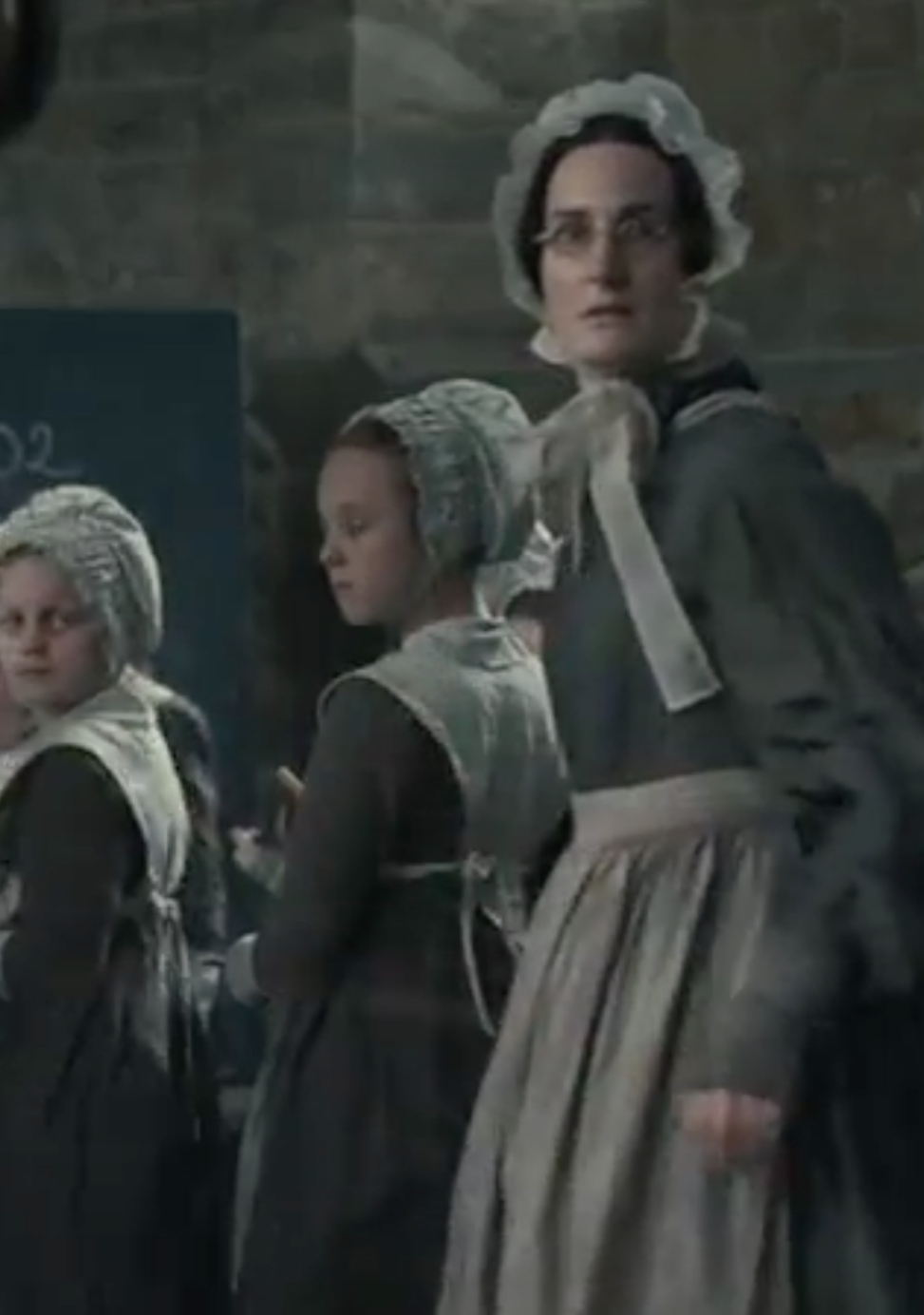Jane Eyre (2011) is a film based on the classic novel Jane Eyre by Charlotte Brontë. It is directed by Cary Joji Fukunaga. The film is set in the 1800s and features Jane, a young governess who grows up in an abusive family dynamic with her aunt and cousins. As an adult, Jane secures employment as a governess and gains the romantic affection of her employer, Rochester. Rochester is revealed later in the film to have been hiding a secret in the house. In an early part of the film, Jane attends a girls’ religious charity school where the children are physically abused. One of the teachers at the school is named Miss Scatcherd. Miss Scatcherd is pictured hitting one of the children with a rod for not adhering to the behaviours expected of her (Fukunaga, 2011 0:14:29 – 0:15:11). In The One vs. the Many: Minor Characters and the Space of the Protagonist in the Novel (2003), Alex Woloch describes how minor characters “fulfill the most common functions of narrative helpers, opposers, or ficelles” and that “[they] are used to map social relations” (Woloch 127). In the case of Jayne Eyre, Miss Scatcherd functionally shows the misogynistic social order, which helps with mapping out the period in which the film is set. Although Miss Scatcherd is seen as dominant over the students at the charity school, she is quick to cower in fear when the headmaster approaches the scene (Fukunaga, 2011, 0:14:40- 0:14:58). This shows how the power of a man supersedes all power positions in the social order of the school. Such a relationship reflects one of the film’s themes, as Jane Eyre displays behaviours later in the film that one may consider a precursor for modern feminism. Miss Scatcherd is a character therefore used to establish one of the major themes in Jane Eyre (2011).
Works Cited
Fukunaga, C. (Director). (2011). Jane Eyre [Film]. Ruby Films; Focus Features; BBC Films.
Woloch, Alex. “Making More of Minor Characters.” The One vs. the Many: Minor Characters and the Space of the Protagonist in the Novel, Princeton University Press, 2003, pp. 125–76. JSTOR, http://www.jstor.org/stable/j.ctt7srp4.6. Accessed 16 Oct. 2023.

Provide Feedback